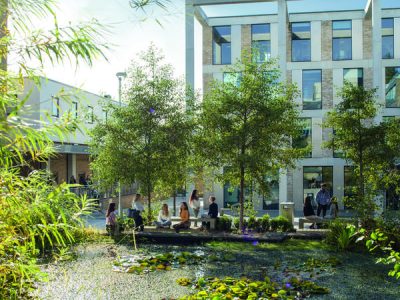A foundation programme or foundation course is designed to prepare secondary school graduates adequately to be able to gain admission to a Bachelor’s or undergraduate degree programme at an international university.
The TAG international Foundation programme establishes a pathway for students wishing to gain seamless entry into undergraduate programmes at the Lancaster University Ghana Campus (LUG), Lancaster University campus in the United Kingdom or any other international university. It is also the only programme in Sub-Saharan Africa to have received full accreditation by the British Accreditation Council.
Students who excel academically have the opportunity to be placed on the Provost’s List, a prestigious award recognised by prospective employers.
Our 1 year Foundation programme is a requirement for WASSCE, SSCE, GBCE, NECO and equivalent graduates, provided they have the accepted grades. Some students applying with GCE ‘O’ Level /GCSE/IGCSE, IB, French Baccalaureate and OIB results may be required to take the Foundation Programme prior to undergraduate studies as well. Speak to our Admissions Team to find out if you meet our admission requirements, and to find out our language requirements.
You must be at least 17 years old and must also meet the applicable academic requirement for the results you are applying with. A list of detailed requirements is on the right side of this page.
Admission Officer
Lancaster University Ghana
TAG’s STEM pathway programme for Engineering* in the Science & Technology stream starts in October each year.
Term 1 comprises the same common core modules as the other Foundation pathways.
TERM 1
• Critical Thinking 1 (7 contact hours per week = 63 contact hours / 9 weeks)
• Foundation Maths (7 contact hours per week = 63 contact hours / 9 weeks)
• Digital Information Skills (7 contact hours per week = 63 contact hours / 9 weeks)
TERM 2
• Intro to Project management (7 contact hours per week = 63 contact hours / 9 weeks)
• Pure Maths 1 (10 contact hours per week = 90 hours / 9 weeks)
TERM 3
• Pure Maths 2 (10 contact hours per week = 90 hours / 9 weeks)
• Mechanics 1 (Maths) (10 contact hours per week = 90 contact hours / 9 week)
• Intro to Physics (Part 1) (7 contact hours per week = 63 contact hours / 9 weeks)
TERM 4
• Mechanics 2 (Maths) (10 contact hours per week = 90 contact hours / 9 week)
• Intro to Physics (Part 2) (7 contact hours per week = 63 contact hours / 9 weeks)
All Foundation modules are equally weighted, with progression from one trimester to the next. Completion of the Foundation Programme requires a pass mark of 50 per cent in each module.
*The progression requirement for the STEM Engineering pathway is in line with the Law pathway, i.e. 70% required overall with no individual module below 60%.
Tuition fees for our Foundation programme is $7,000 per annum. Our priority is to support every student to make the most of their life and education, and we have a large range of available scholarships and anyone can apply.
For more information on our scholarships click here.
To gain admission into our Foundation Programme, you must be at least 17 years old and must also meet the applicable academic requirement from the list below:
The Foundation Programme offers three pathways into undergraduate studies:
All Foundation pathways include units that focus on theoretical and practical content useful and relevant to chosen undergraduate studies at the university.
We integrate theoretical learning with a practical application while trying to make learning as fun and as interactive as possible. In the process, students learn how to think critically in everything they do – be it in academic research and writing, in debating, or when honing their presentation skills.
